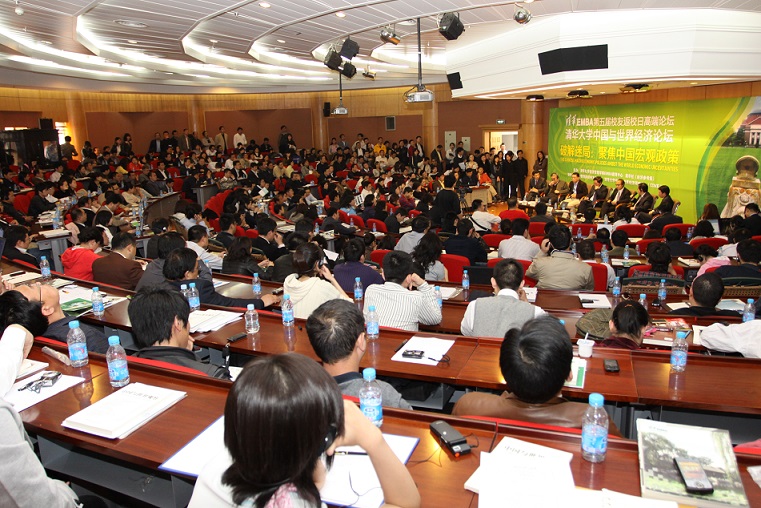No. 3 | The Chinese Macroeconomic Policies Amidst the World Economic Uncertainties

On April 24, 2010, Tsinghua University CCWE successfully held its third forum entitled “the Chinese Macroeconomic Policies Amidst the World Economic Uncertainties.” David Daokui Li, Director of CCWE and Member of the State Monetary Policy Committee, moderated the forum and panel discussion. XIE Weihe, Vice President of Tsinghua University, LIAO Li, Associate Dean of Tsinghua SEM, Director of EMBA Programs and DU Yuejin, Editor-in-Chief, “Economic Information Daily, Xinhua News Agency” gave keynote remarks. Panelists included MA Xiaohe, Vice President of the Academy of the NDRC Macroeconomic Research, Il Houng Lee, Senior Resident Representative, International Monetary Fund (IMF), LIAO Qiang, Director of Ratings for Financial Institutions, Standard & Poor’s (China), PAN Shiyi, Chairman of the Board, SOHO China, YUAN Gangming, CCWE Research Fellow & Director of CASS Economic Research Center, and LEI Dingming, Professor of Hong Kong University of Science and Technology.
The forum, from a perspective of the global economic uncertainties, briefed the audience the status of the Chinese economic dynamics. The forum believes that although the Chinese economy has outperformed many of the world economies in the global crisis and has come out with a strong recovery, China encounters a series of new issues and challenges: rising CPI and inflation pressure, hiking real estate prices, potential crisis of asset price bubbles, increasing costs of the government stimulus program and emerging social problems have created tough tests and dilemmas to the Chinese policy makers on what measures should be taken and how the government can achieve a balance-off in economic, political and social terms, so as to foster further economic growth and maintain economic and social stability.
The information delivered and the views expressed by the panelists focused on the dilemmas in the Chinese economy and the government monetary and financial policy challenges with reference to the world economic imbalances. Over-flow of the capital in the market may have caused the rising pressure on inflation and the asset bubbles. RMB exchange rate and financial institution rating by Standard and Poor’s were also given close attention in the session.
As a timely and effective platform, Tsinghua University has and will continue to invite extraordinary policy makers, experts and business leaders, domestic and international, to address current and long-term Chinese domestic issues amidst the international political and economic environment. The objectives of the forum are both to brainstorm/inform and to provide a good basis for policy recommendations.




